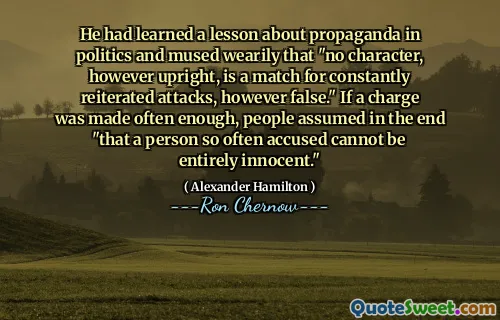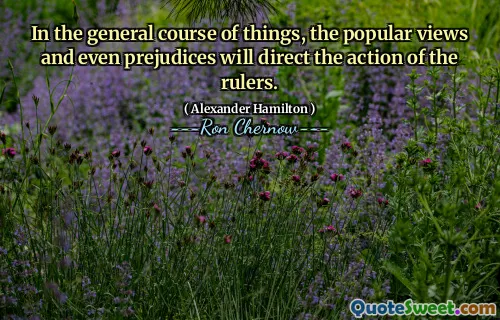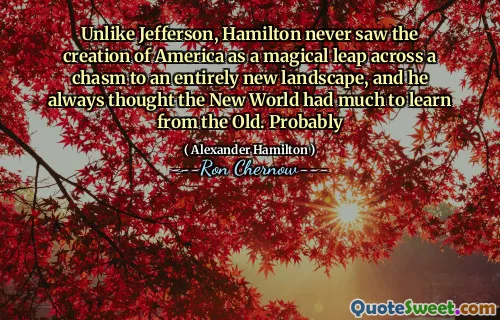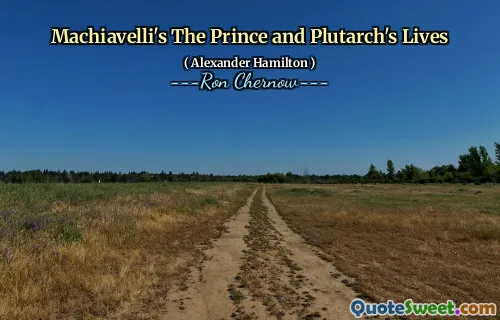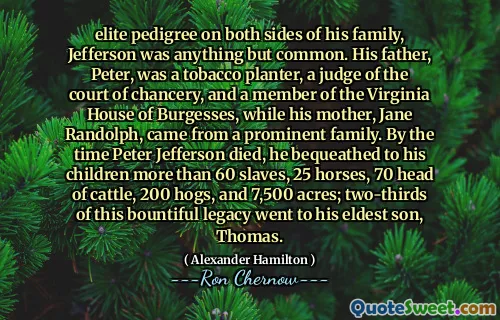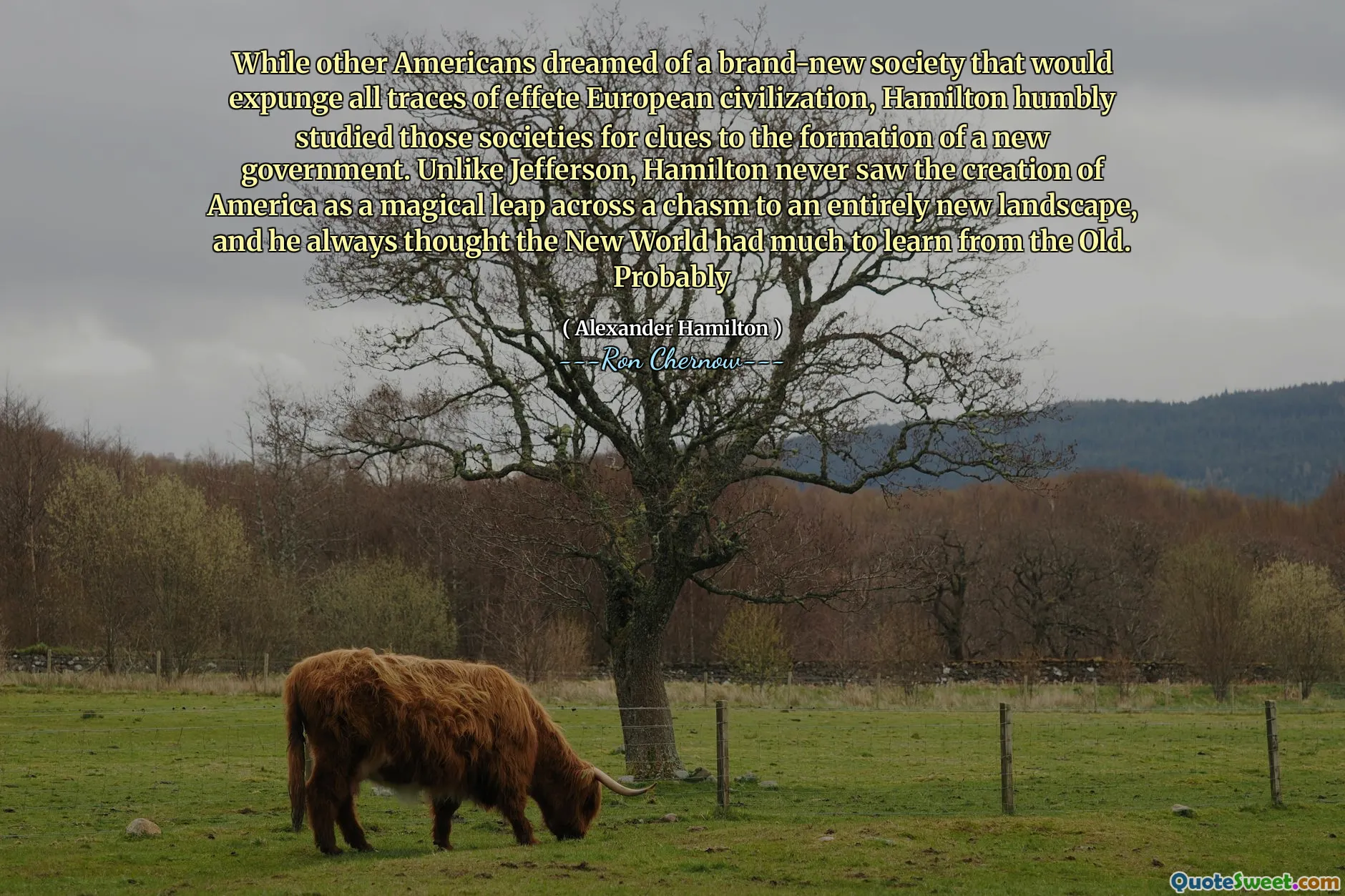
While other Americans dreamed of a brand-new society that would expunge all traces of effete European civilization, Hamilton humbly studied those societies for clues to the formation of a new government. Unlike Jefferson, Hamilton never saw the creation of America as a magical leap across a chasm to an entirely new landscape, and he always thought the New World had much to learn from the Old. Probably
This quote from Ron Chernow's biography of Alexander Hamilton deeply highlights the pragmatic and analytical mindset that set Hamilton apart from other founding fathers, particularly Thomas Jefferson. While many Americans at the time were enamored with the idea of reinventing society, clean and free from the vestiges of outdated European traditions, Hamilton sought wisdom by observing and learning from existing governments. This reveals his recognition that the construction of a new government wasn't a matter of mere invention or idealism but, rather, a complex process rooted in historical experience and practical lessons.
Hamilton's approach embodies a profound respect for history’s influence on political development. Instead of dismissing the 'Old World,' he viewed it as a resource rich with examples—both successful and flawed—that could inform the creation of the 'New World.' This attitude contrasts sharply with Jefferson’s more romantic vision, illustrating how the founding fathers held diverse views on independence and governance.
The quote invites reflection on the significance of humility and prudence in leadership. Hamilton’s willingness to study and adapt established ideas suggests an intellectual humility that acknowledges the complexity of nation-building. It also underscores the importance of continuity alongside change; rather than erasing the past entirely, the goal becomes a thoughtful transformation that respects foundational truths.
Ultimately, this passage reminds modern readers that innovation often builds on the lessons of the past, and that overcoming the challenges of creating something new often requires a careful blending of tradition and novel ideals. Hamilton’s legacy, as described here, serves as a testament to this balanced vision.
